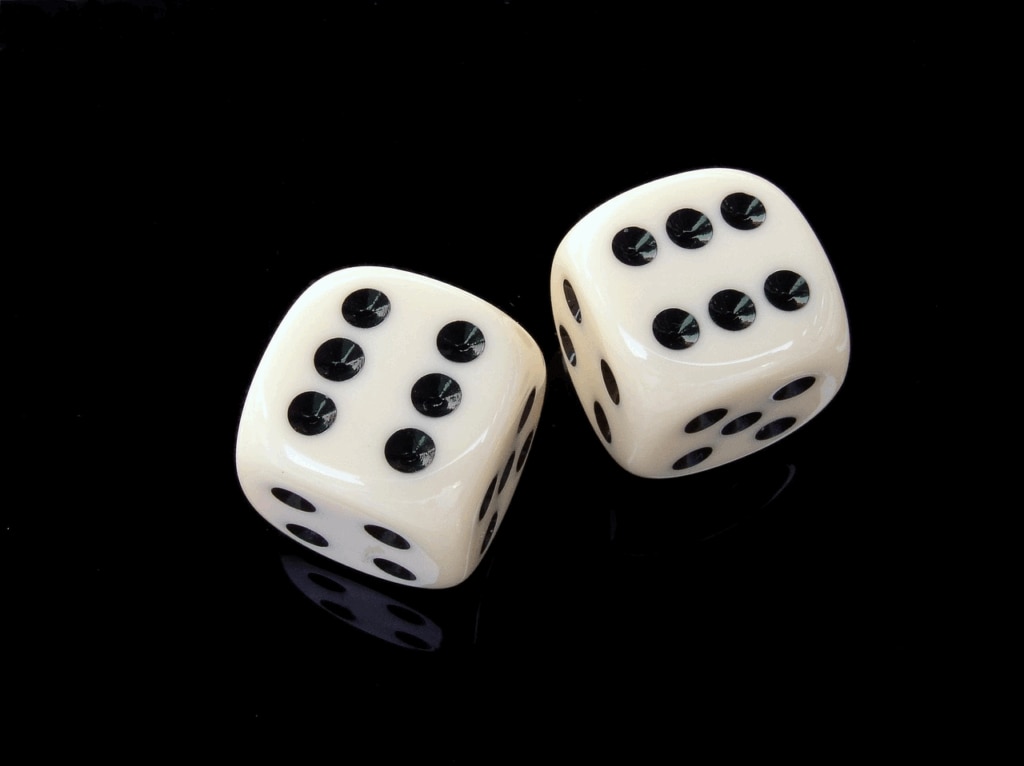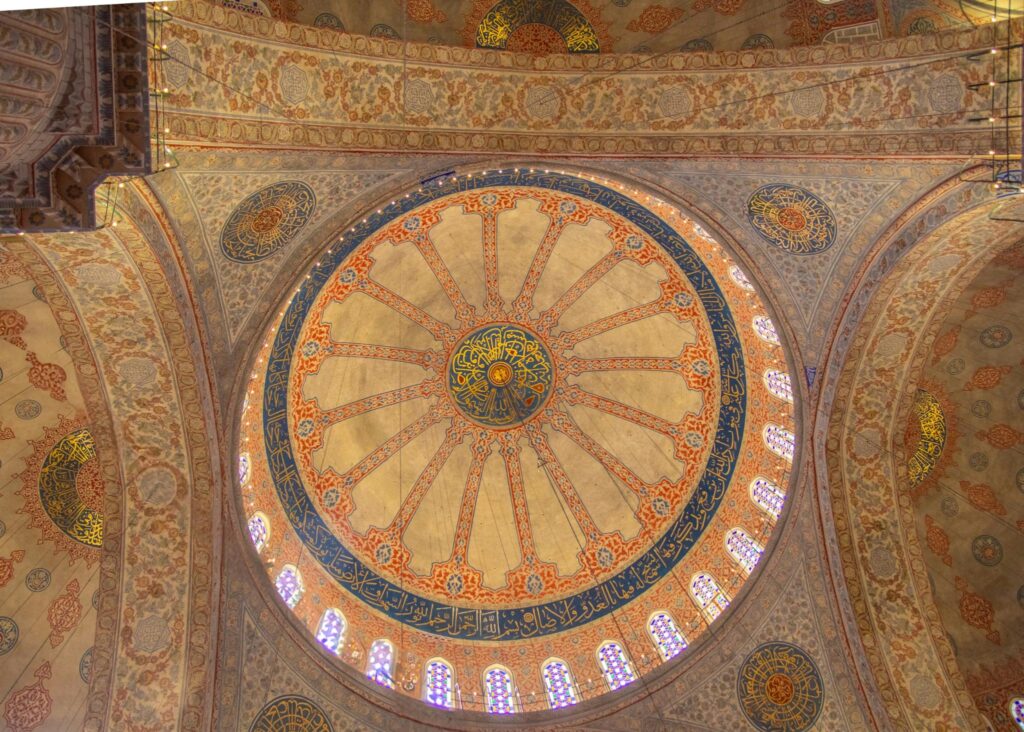Guidance regarding basic Islamic issues that Hazrat Amirul Momineen, Khalifatul Masih Vaa, has given on various occasions in his written correspondence and during MTA programmes is being published officially below for everyone’s benefit.
Are dice-based board games allowed in Islam?

A lady from Canada wrote to Hazrat Amirul Momineen, Khalifatul Masih Vaa, stating that she had heard a hadith about games played with dice and wished for advice and clarification on the matter.
In his letter dated 25 April 2023, Huzoor-e-Anwaraa provided the following guidance on this question:
“The hadith you have mentioned in your letter is narrated from Hazrat Abu Musa al-Ash‘arira in the famous Hadith collection, Sunan Abi Dawud. The Holy Prophetsa said, ‘Whoever plays with dice or their pieces [nard] has disobeyed Allah and His Messengersa.’ (Sunan Abi Dawud, Kitab al-adab, Bab fi n-nahyi ‘ani l-la‘ibi bi n-nard)
“The background to this saying of the Holy Prophetsa is that in the pre-Islamic era of ignorance, games of this nature were played as a form of gambling. Furthermore, such games are so engrossing that they make a person heedless of their essential duties and true purpose. It is for this reason that the Holy Prophetsa forbade such games. However, if these games are entirely devoid of any element of gambling and a person does not become heedless of their true purpose; and instead, during some leisure time or whilst travelling, they play a game such as chess, chausar, cards, Ludo, etc., for a short while, which is completely free from any trace of gambling, then there is no harm in it.
“The essential principle is:
إِنَّمَا الْأَعْمَالُ بِالنِّيَّاتِ
“‘Verily, actions are judged by their intentions.’
“The meaning of this hadith is also precisely the same as the ruling regarding the use of arrows; they were permitted in warfare or for hunting, but when those very same arrows were used for gambling or for divination to ascertain one’s fate and shares, the Holy Quran and the Holy Prophetsa strictly forbade them. (Surah al-Ma’idah, Ch.5:V. 4, 91)
“Thus, the actual prohibition regarding games played with dice and the like is not merely the act of playing with dice, but rather the misuse of the game. Therefore, the command prohibiting such games does not apply only to those played with dice; rather, this injunction applies to every game and every activity in which a command of the sharia is being disobeyed, or that game and activity makes a person heedless of their true purpose. Consequently, in the present age, computers and the various games played on them, as well as different social media platforms and so forth, are also subject to this same prohibition when a person’s inordinate engrossment in these things makes them heedless of their prayers and the remembrance of Allah, which is the true purpose of life.”
Is it permissible for Muslim men to wear diamond rings?

A lady, also from Canada, asked Hazrat Amirul Momineen, Khalifatul Masih Vaa, whether a man could wear a diamond ring.
In his letter dated 30 April 2023, Huzoor-e-Anwaraa gave the following instructions on this matter:
“There is no prohibition on men wearing a diamond ring, provided that the diamond is set as a gemstone in the ring and there is no intention of fashion, ostentation, or an expression of vanity.
“However, if a person wears it for the purpose of fashion, showing off and expressing arrogance, then it will also fall into the category of that which is forbidden, just as the Holy Prophetsa forbade men from wearing gold rings and silk garments, etc. (Sahih al-Bukhari, Kitab al-marda, Bab wujubi ‘iyadati l-marid)” […]
What is the correct view regarding the concept of an ‘ummati Nabi’ (follower Prophet)?

Someone from the UK wrote to Hazrat Amirul Momineen, Khalifatul Masih Vaa, concerning an answer given on the MTA programme “Rah-e-Huda” regarding a follower Prophet [ummati Nabi]. He stated that the answer contradicted the commentary given by Hazrat Musleh-e-Maudra and requested guidance on the matter.
In his letter dated 6 May 2023, Huzoor-e-Anwaraa provided the following guidance in this regard:
“Your point is correct that the answer given on the ‘Rah-e-Huda’ programme causes confusion. Therefore, the relevant department is being instructed to issue the following correct clarification of this question in a future programme.
“The Promised Messiahas attained the station of a follower Prophet [ummati Nabi] solely and exclusively as a result of his perfect obedience to the Holy Prophet Muhammadsa and the latter’s conveying of spiritual excellence. Such conveying of spiritual excellence was never granted to any Prophet before the Holy Prophetsa. And the station of an ummati Nabi was never attained by any Prophet before the Promised Messiahas. Accordingly, the Promised Messiahas states:
“‘Keep in mind, quite a few people are misled when they come across the term ‘Prophet’ with reference to my claim. They think as if I have claimed the kind of Prophethood as was vouchsafed directly to the Prophets of old. But they are wrong in thinking so; I make no such claim. On the contrary, the wisdom and providence of God Almighty has bestowed this status in order to prove the excellence of the spiritual blessings of the Holy Prophet, may peace and blessings of Allah be upon him, that He took me to the station of Prophethood through the blessings of his (the Holy Prophet’s) grace. Therefore, I cannot be defined only as a Prophet. Rather, I am a Prophet in one respect and an ummati [follower of the Holy Prophetsa] in the other. My Prophethood is a reflection of the Holy Prophet, may peace and blessings of Allah be upon him, and not an independent Prophethood. This is why in the hadith as well as in the revelation vouchsafed to me, I have been named a Prophet, just as I have been named an ummati, so that it may be known that every excellence has been bestowed on me through following the Holy Prophet, may peace and blessings of Allah be upon him, and through his medium.’ (Haqiqat-ul-Wahi, Ruhani Khazain, Vol. 22, p. 154, footnote)
“Similarly, while explaining one of his revelations, ‘What a high design has been accomplished by God’s feeling and His Seal’, [Tadhkirah (English), India: 2019, p. 1906] the Promised Messiahas states:
“‘The divine revelation, ‘خدا کی فیلنگ اور خدا کی مہر نے کتنا بڑا کام کیا’ [‘What a lofty design has been accomplished by God’s feeling and His Seal’] means that God felt that this age had become so corrupt that a grand reformer was needed. So the Seal of God performed this task that a follower of the Holy Prophet, may peace and blessings of Allah be upon him, reached the rank of being a follower on the one hand, and a Prophet on the other because Allah the Exalted bestowed the Seal upon the Holy Prophet, may peace and blessings of Allah be upon him; that is, he was bestowed the Seal for the purpose of conveying spiritual excellence, which had not been bestowed upon any other Prophet and that is why he was named the Seal of Prophets. This means that obedience to the Holy Prophet bestows the excellences of Prophethood and his spiritual attention carves out Prophets. No other Prophet has been granted this purifying power. This is the meaning of the hadith عُلَمَاءُ أُمَّتِي كَأَنْبِيَاءِ بَنِي إِسْرَائِيْلَ, meaning that, the divines from among my ummah will be like the Prophets of the Children of Israel. There were many Prophets from among the Children of Israel, but their Prophethood was not because of their obedience to Musa; rather, it was a direct bounty from God. It had no trace of influence of the obedience to Hazrat Musa in it. That is why they were not designated Prophets in one aspect and the followers of a Prophet in another, but were called independent Prophets and the office of Prophethood was bestowed directly upon them.’ (Haqiqat-ul-Wahi, Ruhani Khazain, Vol. 22, pp. 99-100, footnote)
“Hazrat Musleh-e-Maudra has also explained with great clarity that the manner in which the Promised Messiahas is a follower Prophet is a station that was never granted to anyone in previous nations. Accordingly, he states:
“‘Hazrat Ibrahimas is mentioned at the beginning of the account of Lutas because Hazrat Lutas was among those who believed in Hazrat Ibrahimas and was a subordinate Prophet to him, just as Ishaqas and Isma’ilas were subordinate to him, or Harunas was subordinate to Hazrat Musaas. They were not, however, follower Prophets [ummati], because at that time, prophethood was granted directly and not through the blessings of a master-Prophet [nabi-e-matbu‘]. This type of prophethood, where a subordinate Prophet is a Prophet from one perspective and a follower from another, is established only in the ummah of the Holy Prophetsa.’ (Tafsir-e-Kabir, Vol. 4, UK: 2023, p. 308)
“Similarly, on another occasion, in the context of the killing of prophets, Hazrat Musleh-e-Maudra presents the advent of a follower prophet in the manner of a proof, stating:
“‘This is similar to a situation where we might say that no follower Prophet ever appeared before the Holy Prophetsa and someone were to seize upon these words and begin to claim that a plain admission has been made that a follower Prophet can never appear. Everyone would tell him that the statement here only mentions that no follower Prophet appeared before the Holy Prophetsa. Where did you deduce from this that no follower Prophet can come after him either? In the same way, it is written here that the killing of any Prophet by the Children of Israel is not established up to the time of Hazrat Musaas.’ (Daily Al Fazl, Qadian Darul-Aman, No. 203, Vol. 26, 3 September 1938, p. 12)”
(Compiled by Zaheer Ahmad Khan, Head of Records Department, Private Secretariat, London and translated by Al Hakam)

